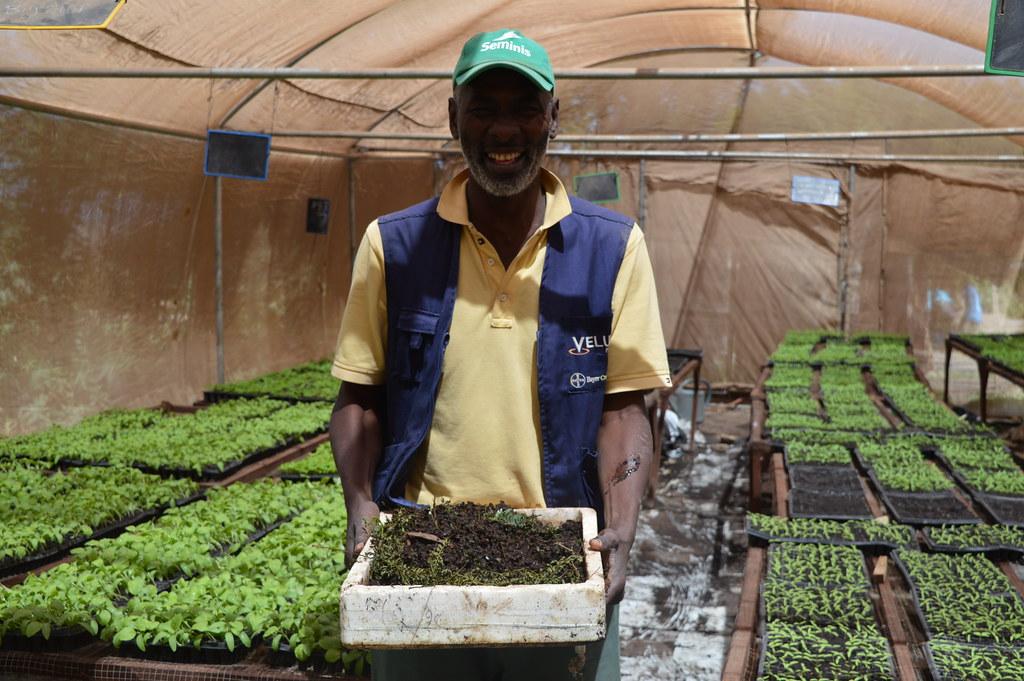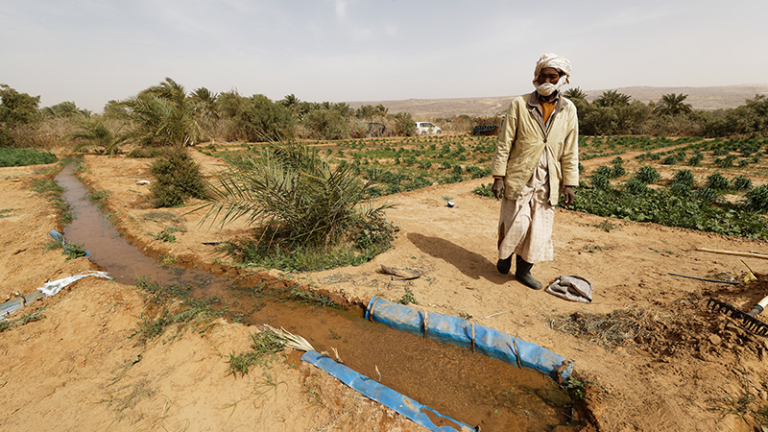Commodities exchanges play an important role in facilitating agricultural finance by incentivizing investors to serve smallholder farmers and agri-SMEs at lower risk. AFEX, a commodities exchange operating in Nigeria and SAFIN partner, recently launched a digital trading platform that exposes a wider variety of investors to the commodities market in Nigeria: ComX. AFEX told SAFIN about the lessons learnt from their experience in facilitating value chain finance in Sub-Saharan Africa and about their hopes for the future of ComX.
Why are commodities exchanges important for the development of agricultural markets and for value chain finance in particular?
Agricultural markets are dependent on collaboration among different stakeholders to thrive. To promote sustainable and inclusive value chains, value must be shared across the board with each player involved. When players are not incentivized to operate in more inclusive and efficient ways, food systems cannot meet our food needs, and producers are stuck in a vicious cycle of poverty. A commodities exchange provides the infrastructure for fairer and more transparent trade by offering its platform as a shared resource for key groups of people to participate in. When a transparent and fair market system determines what the true value of a commodity is, it helps to promote investment, transparency, and equitable distribution of value across the system. Put differently, commodities exchanges create a system where producers, processors and investors can participate in the food system fairly and transparently, aligning incentives with efforts and risk management and unlocking the needed capital for growth and productivity.
A key aspect of the work of commodities exchanges, and thus also our work at AFEX, is to unlock financing for agriculture. The pervasive view of agriculture as a high-risk endeavour hinders the flow of sufficient capital into and within the sector. To unlock financing, lowering investment risks and making them more manageable is critical. With the systems for price discovery and transparency that are provided by a commodities exchange, it becomes easier to monitor the flow of money in and out of the sector, which contributes to improving risk assessment and risk management and ultimately to increasing financial flows within agricultural value chains.
What are the main challenges AFEX has encountered since your launch in 2014, and what lessons have you learned from precedents in Africa?
Since our launch in 2014, part of our challenges have been around infrastructure and access to capital, which are areas where a lot of businesses burn out and erode value. When we came into the market, the supply chain infrastructure for delivering on the orders placed on the exchange was practically non-existent. This required us to spend some time organizing the supply chain end of the market, so buyers could get value from their purchases and producers could get a fair share of proceeds when their produce is traded transparently on the exchange.
Most commodities exchanges in Africa, both surviving and non-operational, have had to pivot from a classical exchange model towards also providing solutions to market impairments. Key learnings from these experiences and our own work have led us to create scalable solutions to address gaps in the market, for instance by establishing warehouses with collateral management and enforcing grading standards for products that are acceptable to market players. We also doubled down on an outreach structure that ensured a complete understanding of the needs of the producers and rendered services to meet their needs.
There is also a very common mistake of seeing technology as a solution rather than a tool. We made this mistake and invested heavily in what was a world-class technology solution, but it did not address current market needs. It took us several years to shift to a home built data aggregation system (WorkBench) and trading platform (ComX) which were built with Africa’s unique challenges in mind.
Can you tell us about ComX, why AFEX took this route and who will benefit from it?
ComX is a trading platform that we launched in January 2020 with the goal of getting a wide variety of investors exposed to the commodities market in Nigeria. The platform is primarily focused on retail and institutional investors that want exposure to alternative assets for investment, and it enables them to invest and trade in agricultural commodity contracts at the click of a button. In essence, ComX allows an impact fund manager or a millennial living in Africa or outside the continent to invest, say, in an input note (tradable discount instrument) or in grains (spot commodity contracts), and make a decent (market level or even above market) return while ultimately financing farmers in Nigeria. Besides serving investors, ComX expands the market for producers.
What are your hopes for the future of ComX and how it will impact agri-finance flows in Nigeria?
We hope for a high adoption rate of the platform both at the retail and institutional level, which will drive liquidity and enable us to achieve our goals of wealth creation and unlocking additional sources of finance for the agriculture sector in the country.
One of the key reasons for designing ComX was to increase the productive capital allocation to commodities production and trading in Nigeria, as well as to provide an efficient aggregation process for commodity consumers. The innovative financing structures that arise from the platform will contribute to both on and off-farm agricultural activities, for instance raising funds to directly finance smallholder primary production or allowing processors to indirectly increase sales opportunities for producers when they issue bonds to finance the purchase of grains.

